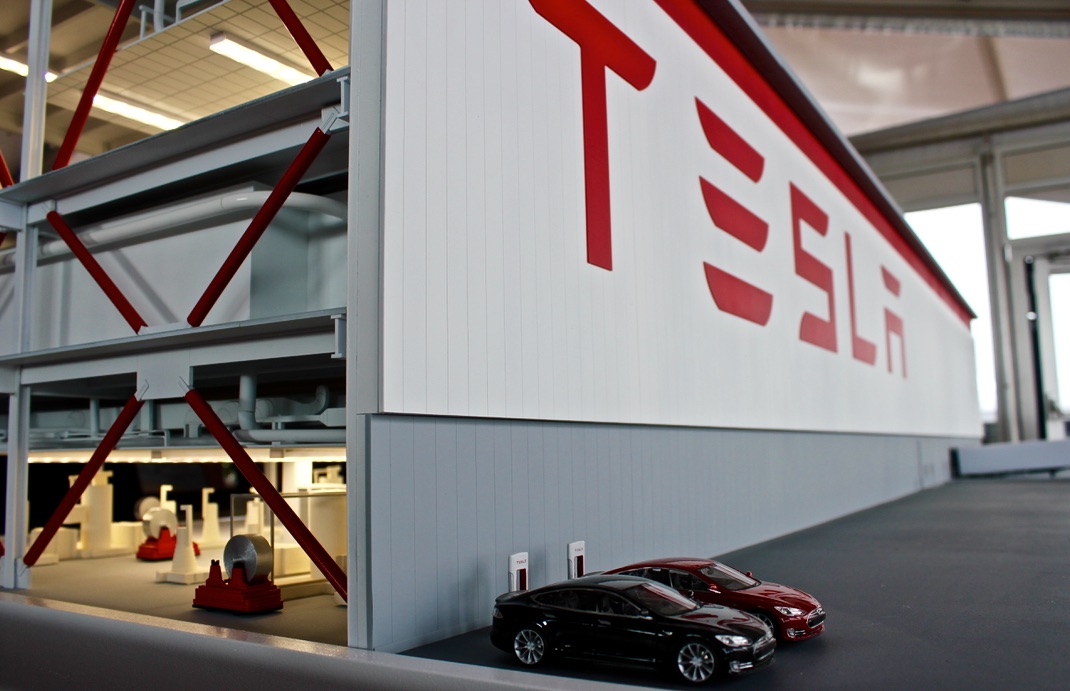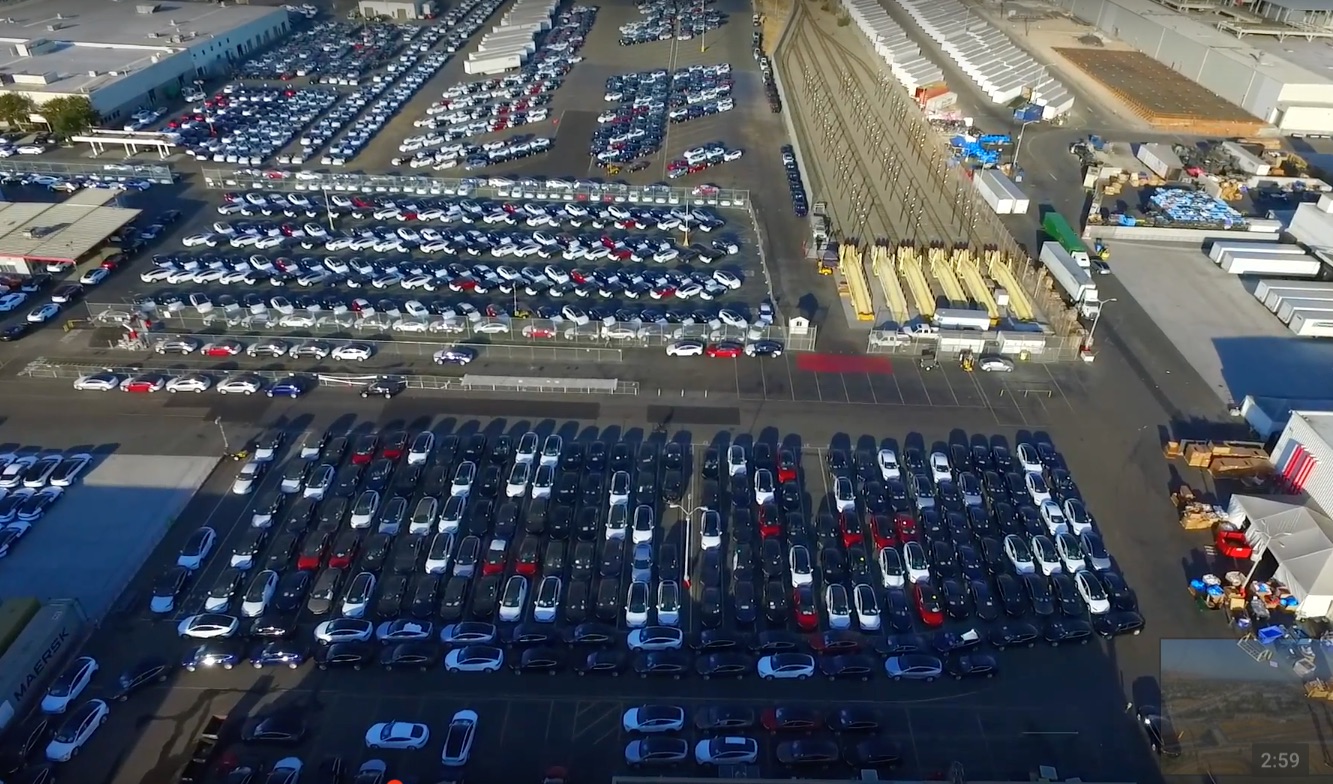News
The Tesla Effect: Why EVs will take a big bite out of oil demand

The newly defined “Tesla Effect” is producing remarkable consequences. Tesla electric vehicles (EVs) have changed the way that people all over the globe now think about transportation, the place of zero tailpipe emissions, and an accelerated agenda for sustainable energy. One “Tesla Effect” is that the International Energy Agency last month forecast that global gasoline demand has all but peaked because of more efficient cars and the spread of EVs.
Thank you, Tesla.
As a small Silicon Valley startup, Tesla Motors began with a line of luxury electric sports cars that could reliably produce more than 200 miles on a single charge. Due to the wide acclaim and demand it received for its cars, Tesla was able to repay a 2010 loan from the U.S. Department of Energy a full nine years early. Their manufacturing facility in California became the largest auto industry employer in California, and Tesla was soon spreading its mission around the globe. It has achieved success beyond any expectations — except that, perhaps, of CEO Elon Musk — and has prompted other major automakers to accelerate work on their own electric vehicles in order to maintain currency in the market.
And now, while EVs represent less than 1 percent of total vehicle sales, they are predicted to soar in popularity around 2025. That’s when many governments around the globe, including Athens, Madrid, Mexico City, and Paris, have pledged to phase out diesel vehicles in a battle against pollution. These promises, known as “intended nationally determined contributions,” will have significant consequences of their own over the decade that will follow. By 2035, EVs may remove 1 million to 2 million barrels a day of oil demand from the market.
“Anything that reduces the demand for transportation has an impact on the oil market,” Alan Gelder, vice president of refining, chemicals, and oils markets at Wood Mackenzie, said in an interview in London. “The question is how big is it going to be and what’s the time frame.”

Model S and Model X vehicles off the production line seen via aerial drone shot of Tesla factory
Electric cars are displacing about 50,000 barrels a day of demand now, according to the oil industry consultant, Wood Mackenzie, which promotes itself to potential customers as “embedded in the industry, with more than four decades building relationships, improving performance and keeping you ahead of the competition.” To placate nervous clients, Wood Mackenzie says that it does expect total oil demand to keep growing for decades, driven by shipping, trucking, aviation, and petrochemical industries. That’s more conservative than Bloomberg New Energy Finance’s forecast for EVs to displace about 8 million barrels a day of demand by 2035.
Tesla alone won’t be able to supply enough EVs if demand really takes off, Gelder said. Major automakers including Volkswagen AG and Ford Motor Co. will need to produce them on a larger scale. “At the moment they can’t, and changing manufacturing lines takes time.”
Gelder continued his argument by stating that regulation and government subsidies alone won’t be enough to spark a boom in EVs. Consumers, he insisted, will need to believe that EVs are preferred for a variety of reasons. “If there’s a technology revolution, so battery technology gets cheaper and EVs don’t need a subsidy, then it comes down to consumer preference. If the consumers like something, it’ll switch far faster.”
If the global response to Tesla is any indication, EVs are not only here to stay: they’ll be the preferred individual mode of transportation of the future.

News
Tesla ships out an update for everyone that California caused
“This change only updates the name of certain features and text in your vehicle,” the company wrote in Release Notes for the update, “and does not change the way your features behave.”

Tesla has shipped out an update for its vehicles that was caused specifically by a California lawsuit that threatened the company’s ability to sell cars because of how it named its driver assistance suite.
Tesla shipped out Software Update 2026.2.9 starting last week; we received it already, and it only brings a few minor changes, mostly related to how things are referenced.
“This change only updates the name of certain features and text in your vehicle,” the company wrote in Release Notes for the update, “and does not change the way your features behave.”
The following changes came to Tesla vehicles in the update:
- Navigate on Autopilot has now been renamed to Navigate on Autosteer
- FSD Computer has been renamed to AI Computer
Tesla faced a 30-day sales suspension in California after the state’s Department of Motor Vehicles stated the company had to come into compliance regarding the marketing of its automated driving features.
The agency confirmed on February 18 that it had taken a “corrective action” to resolve the issue. That corrective action was renaming certain parts of its ADAS.
Tesla discontinued its standalone Autopilot offering in January and ramped up the marketing of Full Self-Driving Supervised. Tesla had said on X that the issue with naming “was a ‘consumer protection’ order about the use of the term ‘Autopilot’ in a case where not one single customer came forward to say there’s a problem.”
This was a “consumer protection” order about the use of the term “Autopilot” in a case where not one single customer came forward to say there’s a problem.
Sales in California will continue uninterrupted.
— Tesla North America (@tesla_na) December 17, 2025
It is now compliant with the wishes of the California DMV, and we’re all dealing with it now.
This was the first primary dispute over the terminology of Full Self-Driving, but it has undergone some scrutiny at the federal level, as some government officials have claimed the suite has “deceptive” names. Previous Transportation Secretary Pete Buttigieg was one of those federal-level employees who had an issue with the names “Autopilot” and “Full Self-Driving.”
Tesla sued the California DMV over the ruling last week.
News
Tesla workers push back against Giga Berlin unionization
“IG Metall did not succeed in Giga Berlin‘s works council election earlier today. The union share was reduced from nearly 40% in 2024 to 31% in 2026! This is a clear message by the Giga Berlin team towards an independent co-determination! The list called Giga United, led by the current chairwoman, Michaela Schmitz, received the most votes with more than 40%! Good news for Giga Berlin!”

Tesla workers pushed back against unionization efforts at Gigafactory Berlin, and over the past few years, there has been a dramatic decrease in interest to unionize at the German plant.
Gigafactory Berlin Plant Manager André Thierig announced on Wednesday that IG Metall, the European union group, saw its share reduce from 40 to 31 percent in 2026 as employees eligible to vote on the issue. Instead, the Giga Berlin team, known as Giga United, received the most votes with more than 40 percent.
BREAKING! 🚨
IG Metall did not succeed in Giga Berlin‘s works council election earlier today. The union share was reduced from nearly 40% in 2024 to 31% in 2026!
This is a clear message by theGiga Berlin team towards an independent co-determination!
The list called Giga…
— André Thierig (@AndrThie) March 4, 2026
Thierig gave specific details in a post on X:
“IG Metall did not succeed in Giga Berlin‘s works council election earlier today. The union share was reduced from nearly 40% in 2024 to 31% in 2026! This is a clear message by the Giga Berlin team towards an independent co-determination! The list called Giga United, led by the current chairwoman, Michaela Schmitz, received the most votes with more than 40%! Good news for Giga Berlin!”
There were over 10,700 total employees who were eligible to vote, with 87 percent of them turning out to cast what they wanted. There were three key outcomes: Giga United, IG Metall, and other notable groups, with the most popular being the Polish Initiative.
The 37-seat council remains dominated by non-unionized representatives, preserving Giga Berlin as Germany’s only major auto plant without a collective bargaining agreement.
Thierig and Tesla framed the outcome as employee support for an “independent, flexible, and unbureaucratic” future, enabling acceleration on projects like potential expansions or new models. IG Metall expressed disappointment, accusing management of intimidation tactics and an “unfair” campaign.
The first election of this nature happened back in 2022. In 2024, IG Metall emerged as the largest single faction with 39.4 percent, but non-union lists coalesced for a majority.
But this year was different. There was some extra tension at Giga Berlin this year, as just two weeks ago, an IG Metall rep was accused by Tesla of secretly recording a council meeting. The group countersued for defamation.
Tesla Giga Berlin plant manager faces defamation probe after IG Metall union complaint
This result from the 2026 vote reinforced Tesla’s model of direct employee-management alignment over traditional German union structures, amid ongoing debates about working conditions. IG Metall views it as a setback but continues advocacy. Tesla sees it as validation of its approach in a competitive EV market.
This outcome may influence future labor dynamics at Giga Berlin, including any revival of expansion plans or product lines, which Musk has talked about recently.
News
SpaceX President Gwynne Shotwell details xAI power pledge at White House event
The commitment was announced during an event with United States President Donald Trump.

SpaceX President Gwynne Shotwell stated that xAI will develop 1.2 gigawatts of power at its Memphis-area AI supercomputer site as part of the White House’s new “Ratepayer Protection Pledge.”
The commitment was announced during an event with United States President Donald Trump.
During the White House event, Shotwell stated that xAI’s AI data center near Memphis would include a major energy installation designed to support the facility’s power needs.
“As you know, xAI builds huge supercomputers and data centers and we build them fast. Currently, we’re building one on the Tennessee-Mississippi state line. As part of today’s commitment, we will take extensive additional steps to continue to reduce the costs of electricity for our neighbors…
“xAI will therefore commit to develop 1.2 GW of power as our supercomputer’s primary power source. That will be for every additional data center as well. We will expand what is already the largest global Megapack power installation in the world,” Shotwell said.
She added that the system would provide significant backup power capacity.
“The installation will provide enough backup power to power the city of Memphis, and more than sufficient energy to power the town of Southaven, Mississippi where the data center resides. We will build new substations and invest in electrical infrastructure to provide stability to the area’s grid.”
Shotwell also noted that xAI will be supporting the area’s water supply as well.
“We haven’t talked about it yet, but this is actually quite important. We will build state-of-the-art water recycling plants that will protect approximately 4.7 billion gallons of water from the Memphis aquifer each year. And we will employ thousands of American workers from around the city of Memphis on both sides of the TN-MS border,” she noted.
The Ratepayer Protection Pledge was introduced as part of the federal government’s effort to address concerns about rising electricity costs tied to large AI data centers, as noted in an Insider report. Under the agreement, companies developing major AI infrastructure projects committed to covering their own power generation needs and avoiding additional costs for local ratepayers.








